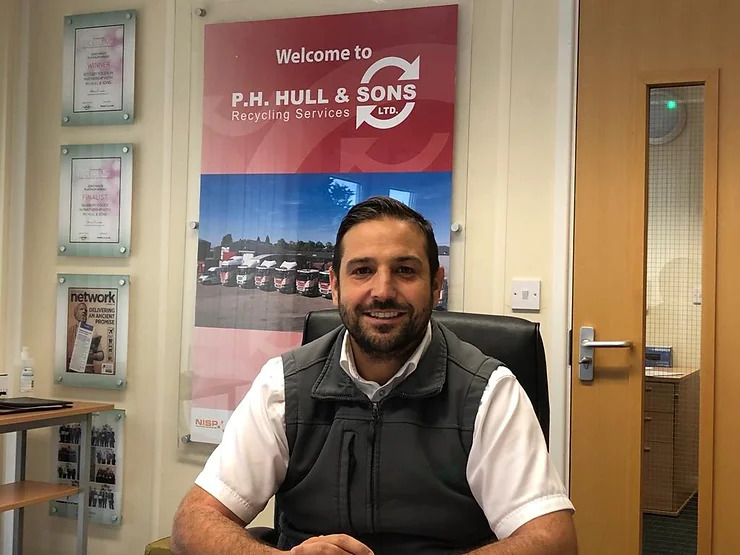
- Indigo Environmental Ltd

-
Indigo chats to… P H Hull & Sons Ltd
Updated: Mar 26, 2021
Here at Indigo Environmental, we’re passionate about sustainable and localised plastic recycling. That’s why we work closely with our clients to understand their individual requirements.
But don’t just take our word for it, here Robert Hull from P H Hull & Sons Ltd explains more about their company and what it’s really like working with us…

1. Tell us a bit about your company
I’m the director of P H Hull & Sons Ltd – a waste management provider, specialising in the food factory sector.
We are a four-generational family business located near Melton Mowbray and have a 30-strong workforce.
For 80 years, we’ve been meeting the recycling needs of our nationwide customer base. During this time, we’ve become an established and trusted service provider to many sites within the food factory sector, and pride ourselves on the extensive knowledge our team has surrounding the challenges facing this industry.
2. Describe what your company does in one sentence:
We work with various industries based around the UK, helping them achieve 0% waste to landfill.
3. When did you first start working with Indigo?
In March 2018.
4. And in what capacity? Are you a material supplier or buyer?
We’re a material supplier – providing Indigo with contaminated plastics from food factories, for washing and recycling at their on-site reprocessing plant.
5. Why did you decide to partner with Indigo?
To us, Indigo Environmental offers an approach very similar to our own values – customer-centric and environmentally sustainable. And this supports us in achieving the best outcomes for our customers, in line with the waste hierarchy.
The firm’s sustainable, cost-effective solutions are outstanding, and the staff support is second to none.
6. Explain in three words what it’s like working with the team:
Innovative, collaborative and fair. Or equally, bring great cakes!
7. What is one of the biggest waste management challenges facing the waste management/food factory industry?
Soft plastic ingredient packaging is likely to be contaminated with food residue once the product has been removed, and as a result, the material is often considered ‘too soiled’ to be commercially viable for recycling. This isn’t the case, however, but there are only a limited number of facilities that are able to deal with such commodities effectively.
8. In your opinion, what role does (or should) plastic recycling play in a circular economy?
There is no doubt that plastics provide a valued function in our society– particularly in the food industry. However, applying a circular-economy style of thinking throughout the design process of a product – and the rest of its supply chain – would help to ensure that used plastics don’t become a waste, and will have an economic value. This will, in turn, increase sustainable processes, reduce wastage and help protect the environment.
9. And what are your hopes for the future of the plastic recycling industry?
That pioneering members from the plastic recycling industry and product/packaging designers throughout the supply chain collaborate more. This would help to ensure that both the product and packaging are manufactured from the most recycled and/or recyclable materials possible.
Alongside this, successful niche methods to recycle should become more widespread and cost effective. Focusing on innovative reprocessing technologies that are scalable, would create a greater mix of materials that can be reused or recycled – this would improve and widen the scope of industries able to work within a closed-loop system.
10. What advice would you give to other businesses looking for a sustainable plastic recycler?
Save yourself the hours and go direct to Indigo Environmental – you won’t be disappointed.
If you’d like to take part in our client Q&A series, please contact our PR representative, Amy Lloyd via amy@scribapr.com.
